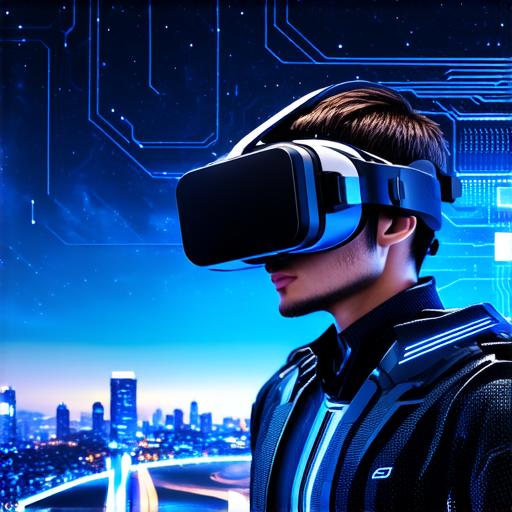
In what areas is virtual reality utilized?

Virtual reality (VR) is a rapidly growing technology that immerses users in a simulated environment. VR has numerous applications across various industries, including gaming, education, healthcare, and more.
Gaming Industry: The Most Popular Application of VR
The gaming industry is undoubtedly the most popular application of virtual reality. VR allows gamers to immerse themselves in a fully interactive and immersive experience. This technology has revolutionized the way people play games, making them more engaging, interactive, and realistic.
One of the key benefits of VR in gaming is that it enhances the user’s sense of presence and makes the game world feel more authentic. It also allows for a more immersive experience, as users can interact with objects and characters in the virtual world.
Another advantage of VR gaming is that it enables players to engage in social experiences, where they can play games with friends or even strangers from around the world. This social aspect has made VR gaming a popular pastime for people of all ages.
Education: Learning in a Virtual Environment
Virtual reality has also found its place in the education industry. It allows students to learn and interact in a virtual environment, providing them with a more engaging and interactive learning experience.
VR technology can simulate real-life scenarios, such as historical events or scientific experiments, allowing students to gain a better understanding of complex concepts. This technology also enables students to practice and perfect their skills in a safe and controlled environment.
One example of VR in education is the use of virtual labs in science and engineering classes. These virtual labs allow students to conduct experiments and manipulate variables without any physical limitations or safety concerns.
Healthcare: Enhancing Patient Experience and Treatment Outcomes
Virtual reality has also found applications in healthcare, particularly in the areas of treatment and patient experience. It can be used to simulate medical procedures and surgeries, allowing doctors to practice and perfect their skills before performing them on real patients.
VR technology can also be used to create virtual environments that can help patients cope with chronic pain or anxiety disorders. For example, VR can be used to create a peaceful and calming virtual environment that helps patients relax and manage their symptoms.
Moreover, VR technology has the potential to revolutionize medical training by providing doctors and nurses with a more immersive and realistic learning experience. This can help them develop better communication skills and improve patient care outcomes.
Retail: Enhancing Customer Experience and Sales
Virtual reality is also being used in the retail industry to enhance customer experience and increase sales. Retail companies are using VR technology to create virtual showrooms, where customers can explore products and make purchases without leaving their homes.
VR technology can also be used to provide customers with a more personalized shopping experience, allowing them to see how products will look in their own home or on their own body before making a purchase. This personalization can help increase customer satisfaction and loyalty, leading to repeat purchases and positive word-of-mouth marketing.
Tourism: Virtual Travel Experiences
Virtual reality is also being used in the tourism industry to provide customers with virtual travel experiences. These virtual tours allow customers to explore different destinations around the world without leaving their homes.
VR technology can also be used to create more immersive and realistic travel experiences, such as virtual safaris or underwater diving trips. This can help customers experience new cultures and destinations in a more authentic and memorable way.


